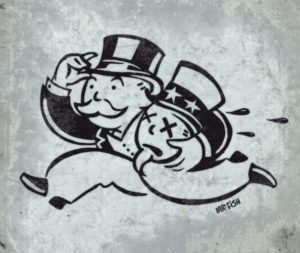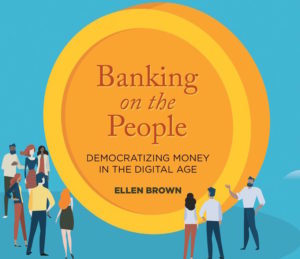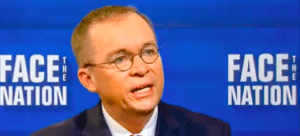Nouriel Roubini: Capitalism Must Be Saved From Itself
Economist and New York University professor Nouriel Roubini explains that globalization, reckless lending and borrowing, and the redirection of income and wealth from industries dependent upon human labor and well-being to those composed mainly of capital (more).
Economist and New York University professor Nouriel Roubini explains that globalization, reckless lending and borrowing, and the redirection of income and wealth from industries dependent upon human labor and well-being to those composed mainly of capital, such as the global derivatives market, are undermining the social structures that capitalism relies upon to function.
Left alone, markets cannot be expected to serve the general good, he says, and neither can indefinite spending driven primarily by deficits. A global shift to the social sensibilities of 1930s America, when the government created a basis for production and demand by prioritizing the welfare of the average citizen through investments in skills training and social safety nets — which he and other economists call “human capital” — is needed to save societies from capitalism’s drive to consume itself and virtually everything else. –ARK
Your support matters…Nouriel Roubini at Project Syndicate:
To enable market-oriented economies to operate as they should and can, we need to return to the right balance between markets and provision of public goods. That means moving away from both the Anglo-Saxon model of laissez-faire and voodoo economics and the continental European model of deficit-driven welfare states. Both are broken.
The right balance today requires creating jobs partly through additional fiscal stimulus aimed at productive infrastructure investment. It also requires more progressive taxation; more short-term fiscal stimulus with medium- and long-term fiscal discipline; lender-of-last-resort support by monetary authorities to prevent ruinous runs on banks; reduction of the debt burden for insolvent households and other distressed economic agents; and stricter supervision and regulation of a financial system run amok; breaking up too-big-to-fail banks and oligopolistic trusts.
Over time, advanced economies will need to invest in human capital, skills and social safety nets to increase productivity and enable workers to compete, be flexible and thrive in a globalized economy. The alternative is – like in the 1930s – unending stagnation, depression, currency and trade wars, capital controls, financial crisis, sovereign insolvencies, and massive social and political instability.
Independent journalism is under threat and overshadowed by heavily funded mainstream media.
You can help level the playing field. Become a member.
Your tax-deductible contribution keeps us digging beneath the headlines to give you thought-provoking, investigative reporting and analysis that unearths what's really happening- without compromise.
Give today to support our courageous, independent journalists.






You need to be a supporter to comment.
There are currently no responses to this article.
Be the first to respond.